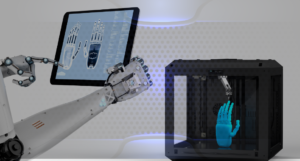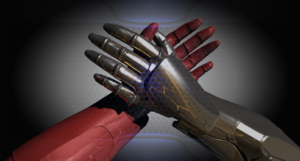With its brand-new detector designed to handle significantly more challenging data-taking conditions, the Quantum machine learning (QML) at the Large Hadron Collider beauty (LHCb) experiment at Conseil Européen pour la Recherche Nucléaire (CERN) recently announced the first proton-proton collisions at world-record energy.
The DPA team, led by the University of Liverpool senior research physicist Eduardo Rodrigues, has demonstrated for the first time the successful use of Quantum machine learning techniques for the identification of the charge of b-quark initiated jets at The Large Hadron Collider (LHC).
Quantum machine learning, quantum computing, and their ‘interaction’
While machine-learning algorithms are used to process enormous amounts of data, quantum machine learning makes use of qubits, quantum operations, or specific quantum systems to boost the speed and accuracy of computation and data storage.
The quantum computer provides a completely new type of computing hardware to the machine learning hardware pool: quantum computers. The quantum theory explains the completely distinct physical principles that support information processing on quantum computers.
On the other hand, quantum computing is a way of computing that relies on the principles of quantum mechanics to function. Data is encoded in bits, which can only be either 1 or 0, in traditional computing. On the other hand, qubits, which can be both 1 and 0, are used in quantum computing.
Quantum machine learning investigates how concepts from quantum computing and machine learning interact. The hardware we use to run our algorithms has always defined the limits of what computers can learn; for instance, parallel graphics processing unit (GPU) clusters enable the success of modern deep learning with neural networks.
Modern deep learning algorithms are applied to large data sets, but the hardware limits the size of these data sets. To go beyond this limit, we need new approaches that make use of quantum capabilities.
Application of quantum machine learning
Quantum machine learning is a way forward for quantum computing and machine learning research. It combines the best of both worlds: Quantum computers can solve certain classes of problems in far less time than traditional computers, for example, those related to optimization or machine learning. The theory behind quantum machine learning is still under development, but the first successes are being seen in practical applications.
For example, quantum machine learning can help in improving pattern recognition, which in turn, will make it easier for scientists to predict extreme weather events and potentially save thousands of lives a year. Developing a room-temperature superconductor, eliminating carbon dioxide for a better environment, making solid-state batteries, and enhancing the nitrogen-fixation process for the production of ammonia-based fertilizer are some of the urgent problems that could be solved with quantum computing.
This paper demonstrated, for the first time, that Quantum machine learning can be used with success in LHCb data analysis. – Dr. Eduardo Rodrigues
Moreover, quantum machine learning will be crucial in developing novel technologies. Quantum machine learning can help us understand quantum effects and discover applications for quantum computing. Another example is quantum cryptography, the ability to try to hide information from eavesdroppers, or quantum metrology, the ability to measure and record the distribution of material properties by using a quantum computer.
Last but not least, quantum machine learning is used for developing artificial intelligence (AI) algorithms that will analyze huge amounts of data in a different way than classical ones.
The combination of both fields will certainly reshape society. It will change the way we live and think when combined with blockchain technology, which is also a combination of different scientific fields, such as cryptography, distributed systems, and peer-to-peer networking.
Related Reading:
Our future depends on the convergence of technologies and their integration into our everyday lives. But let’s go back to quantum machine learning and the latest experiment conducted by the Data Processing & Analysis (DPA) team of researchers.
Experiment by the DPA team
The DPA project is a major renovation of the offline analysis framework to allow full exploitation of the significant increase in the data flow from the upgraded LHCb detector.
For the medium and longer term, this effort is a part of R&D beyond the just-starting new data-taking period.
In LHCb analysis, the usage of machine learning techniques is common. Given the quick development of quantum computing and quantum technologies, it seems sensible to start looking into whether and how quantum algorithms can function on this new hardware, as well as whether or not the LHCb particle physics use cases may profit from the growing field of quantum computing.
The team used QML techniques for the first time to deal with the task of hadronic jet charge identification. Till now, QML techniques have mostly been used in particle physics to solve event classification and particle track reconstruction challenges.
Based on a sample of simulated b-quark-initiated jets, the study “Quantum Machine Learning for b-jet charge identification” was accomplished. A Deep Neural Network (DNN), a modern, powerful type of conventional (i.e., non-quantum) artificial intelligence algorithm, was used to compare the performance of a so-called Variational Quantum Classifier that is based on two different quantum circuits. Although tests on actual hardware are now being developed, the performance is examined using a quantum simulator because the quantum hardware that is currently on the market is still in its early stages.
Results
The DNN worked marginally better than the quantum machine learning algorithms when the results were compared to those produced using a classical Deep Neural Network.
The study shows that the quantum method of machine learning achieves maximum performance with minimal events. As a result, it assists in lowering resource utilization, which will become vital at LHCb given the volume of data obtained in the coming years. However, the DNN surpasses Quantum methods for machine learning when more features are used. With the availability of more effective quantum hardware, improvements are expected.
Quantum algorithms can be used to study correlations between features, according to research conducted in partnership with subject matter experts. This would allow it to gather data on correlations between jet constituents, which would enhance the accuracy of identifying jet flavors.
“This paper demonstrated, for the first time, that Quantum machine learning can be used with success in LHCb data analysis”, Dr. Eduardo Rodrigues said. Quantum machine learning is just beginning to be used in particle physics experiments. Because of the widespread interest and investment in quantum computing, significant advances in hardware and computer technologies are to be expected as scientists develop experience with it.
“This work, which is part of the R&D activities of the LHCb DPA project, provided valuable insight into Quantum machine learning. The interesting (first) results open new avenues for classification problems in particle physics experiments”, Dr. Rodrigues added.
Future implications of the findings
From the study, it is obvious that the DNN has a better performance than the classical machine learning algorithms when the results were compared to those produced using a conventional Deep Neural Network.
The study found that significant performance gains can be obtained for the DNN algorithms, which could have direct implications for future events analysis and reconstruction at LHCb.
In the future, improvements to the hardware could lead to even more impressive performance. The next step could be to test the performance of these methods on actual data of real b-quark jets at LHCb.
Moreover, this finding will enable the immediate implementation of Quantum machine learning techniques in the analysis of real LHCb data. Researchers believe that Quantum machine learning will significantly boost the overall performance of the LHCb experiment, providing vital information for a deeper understanding of physics beyond the Standard Model and ultimately new discoveries.
- AI-Powered PCs: Overhyped Trend or Emerging Reality? - August 21, 2024
- Princeton’s AI revolutionizes fusion reactor performance - August 7, 2024
- Large language models could revolutionize finance sector within two years - March 27, 2024



